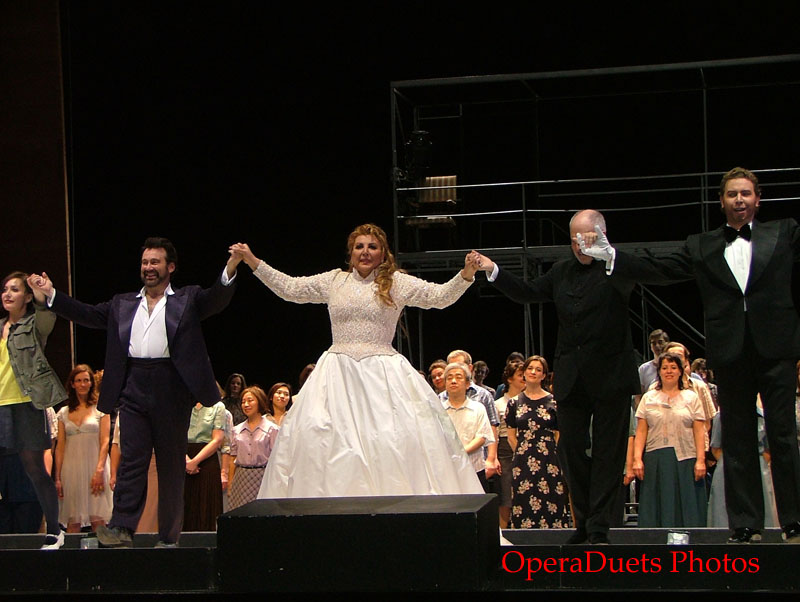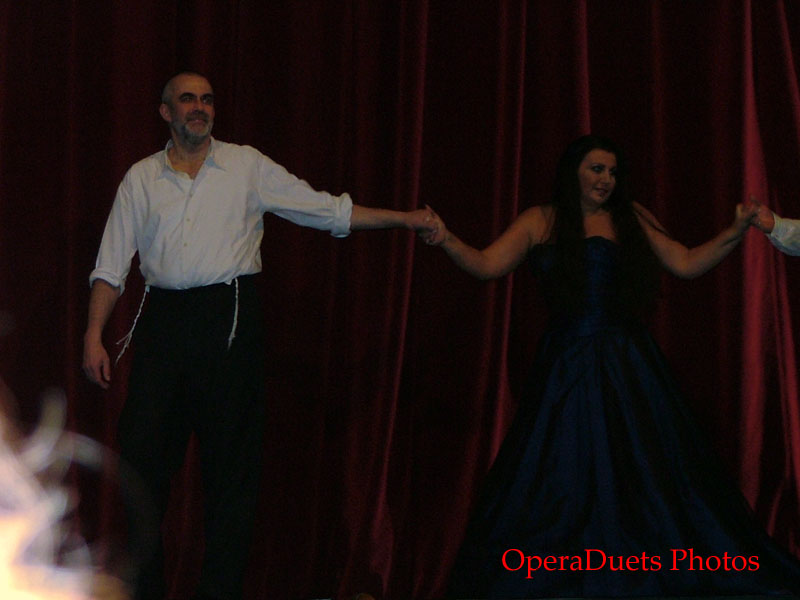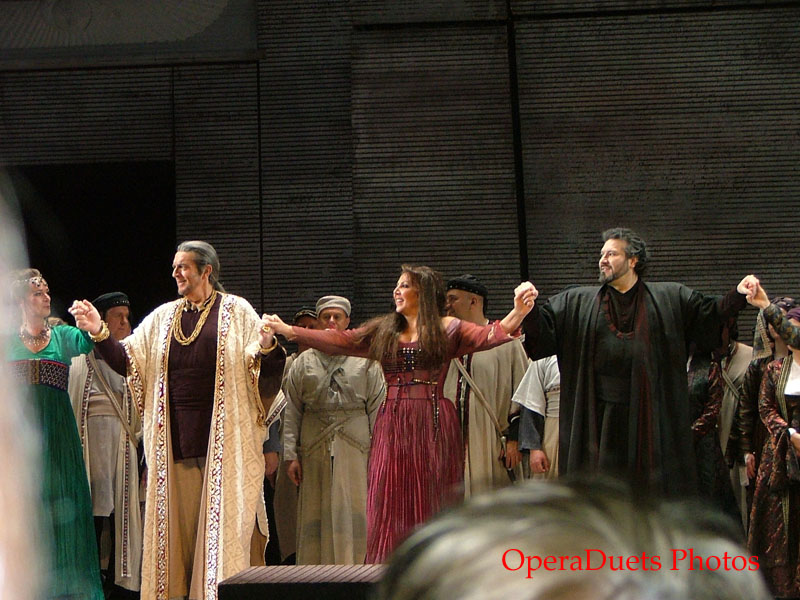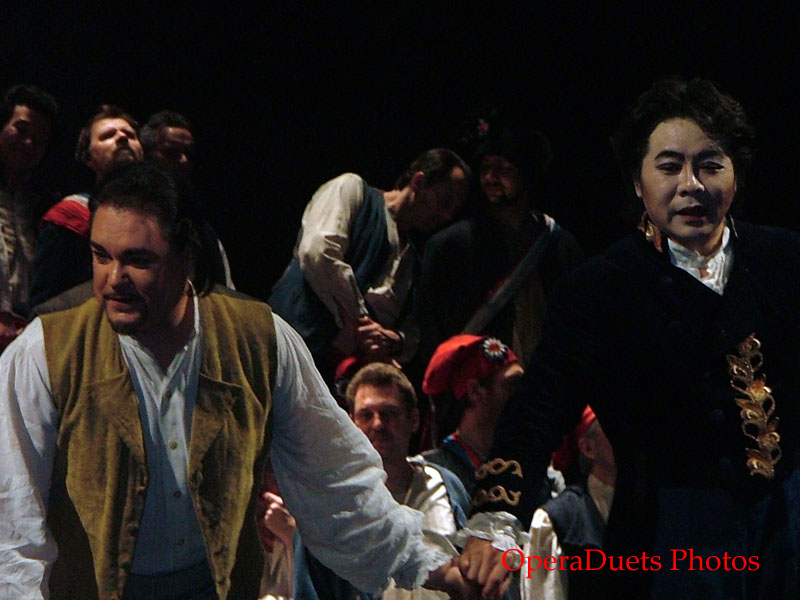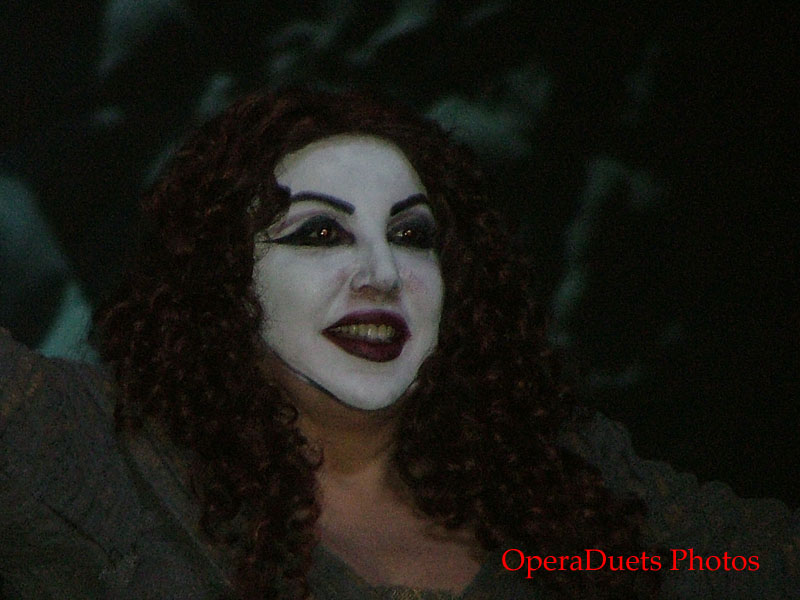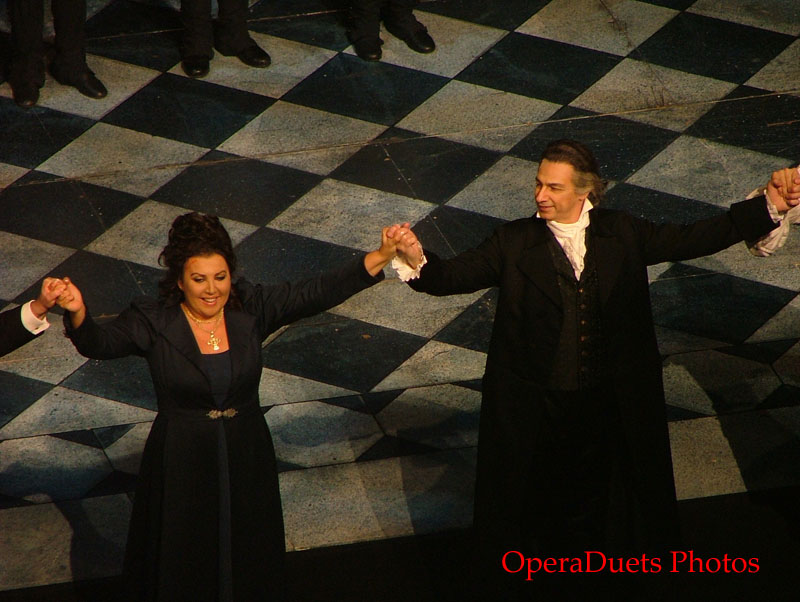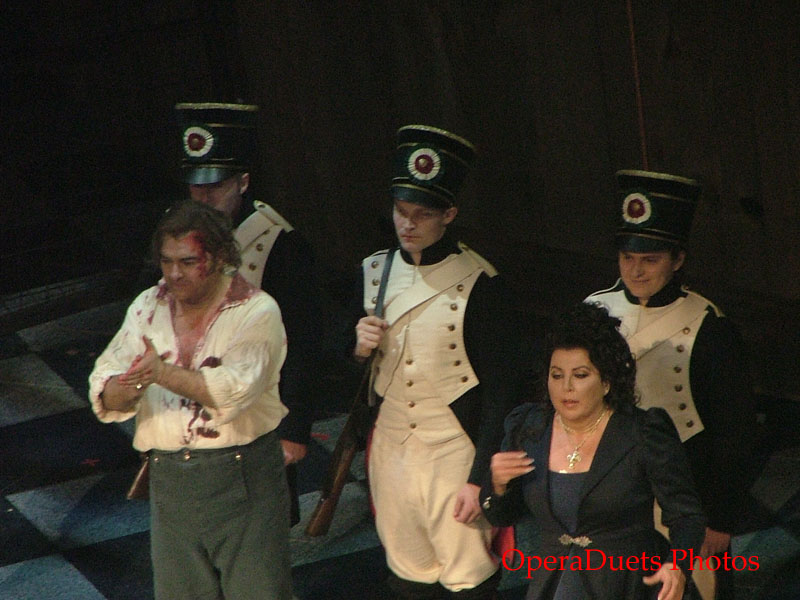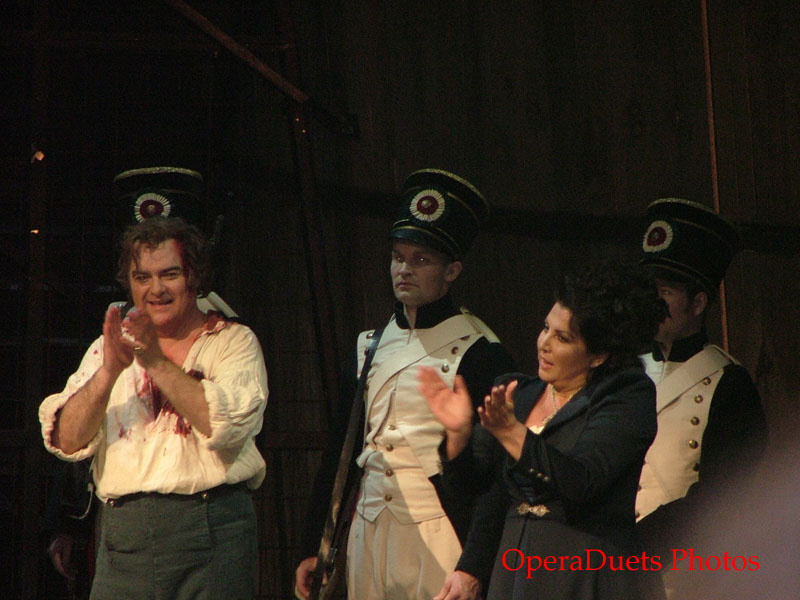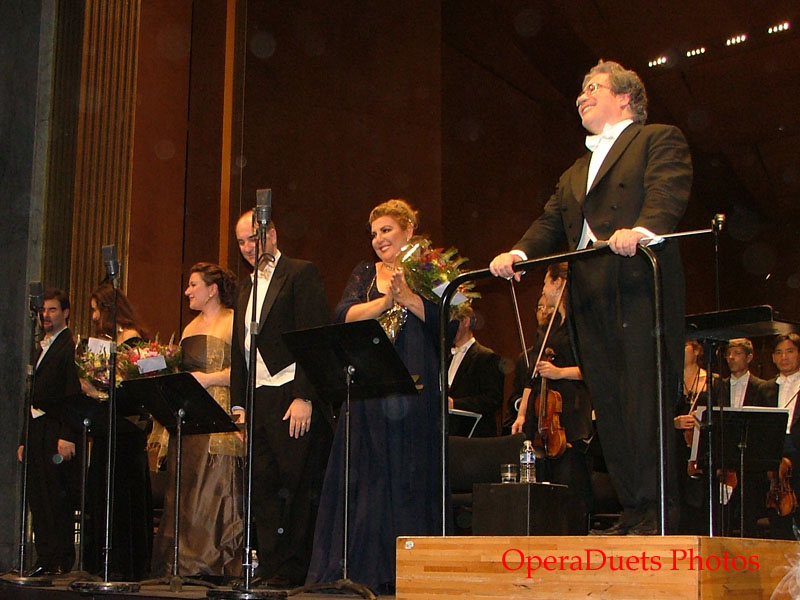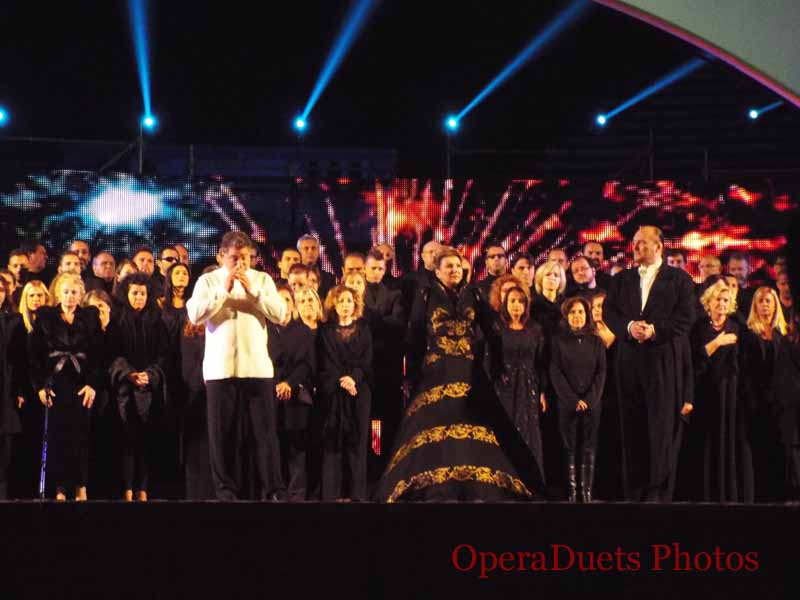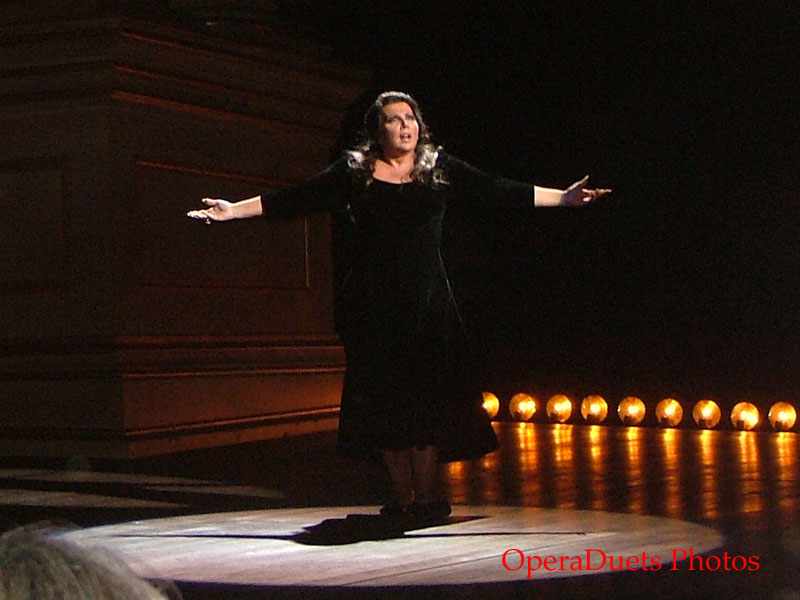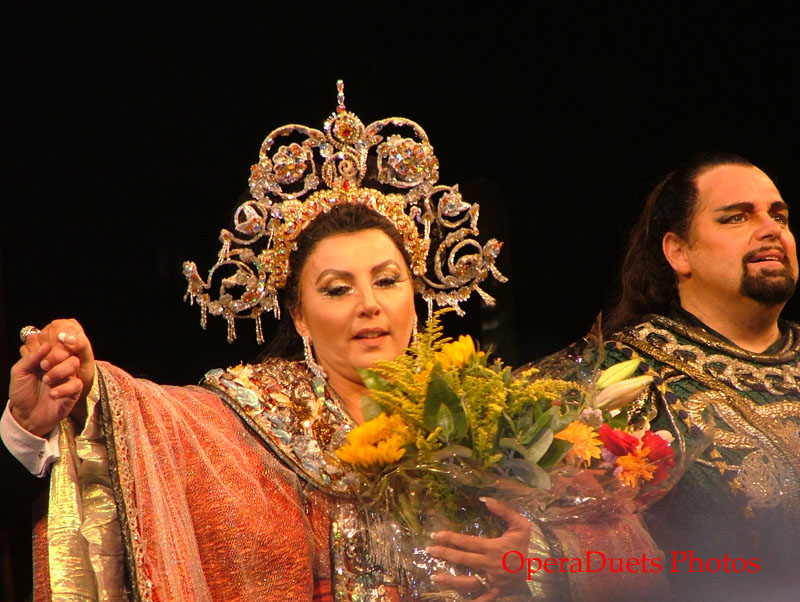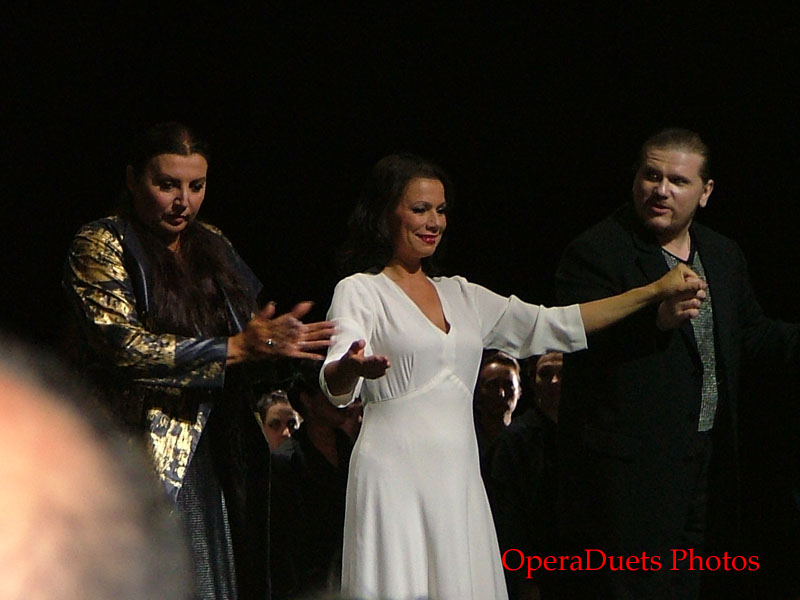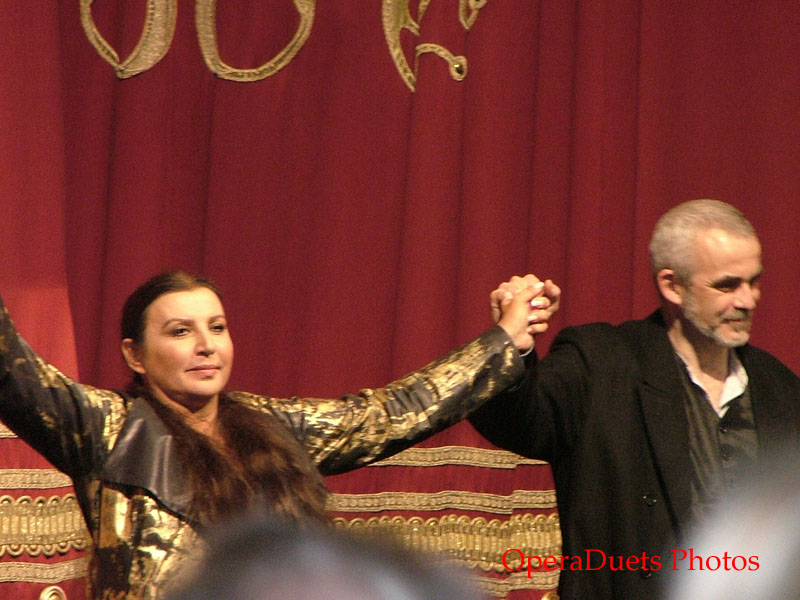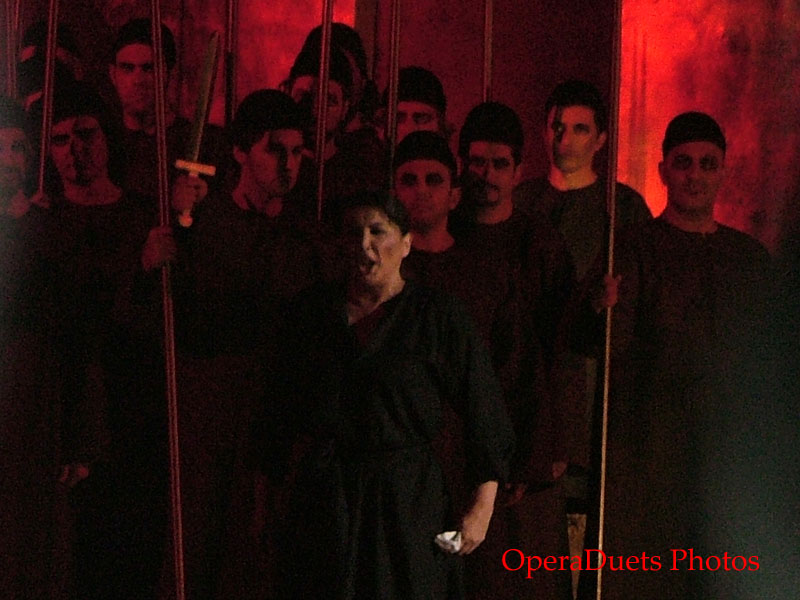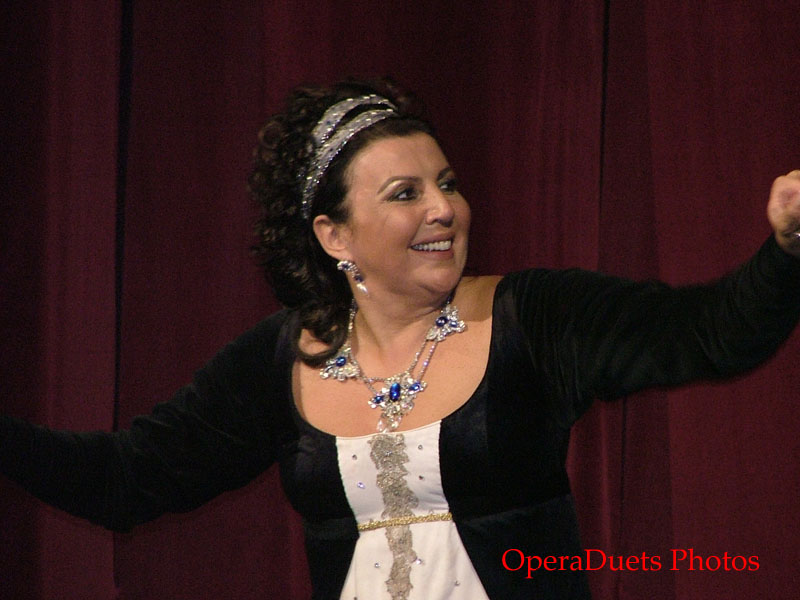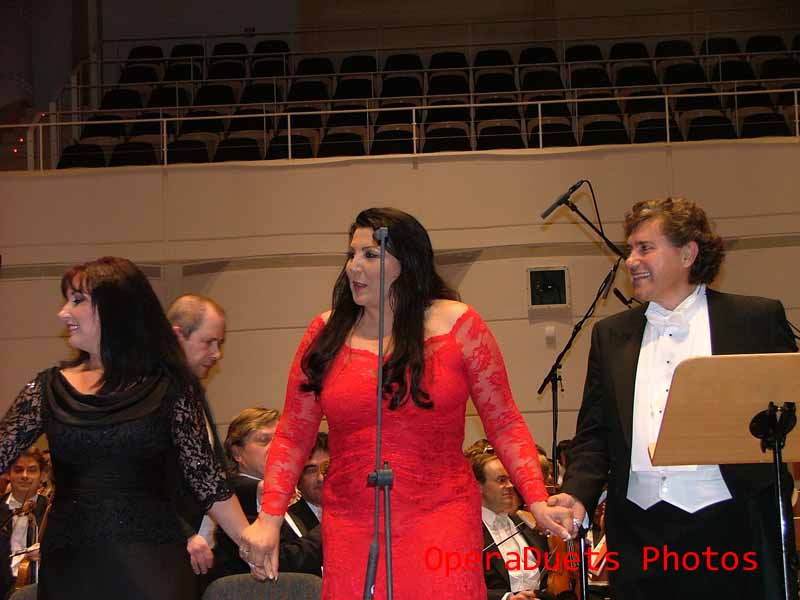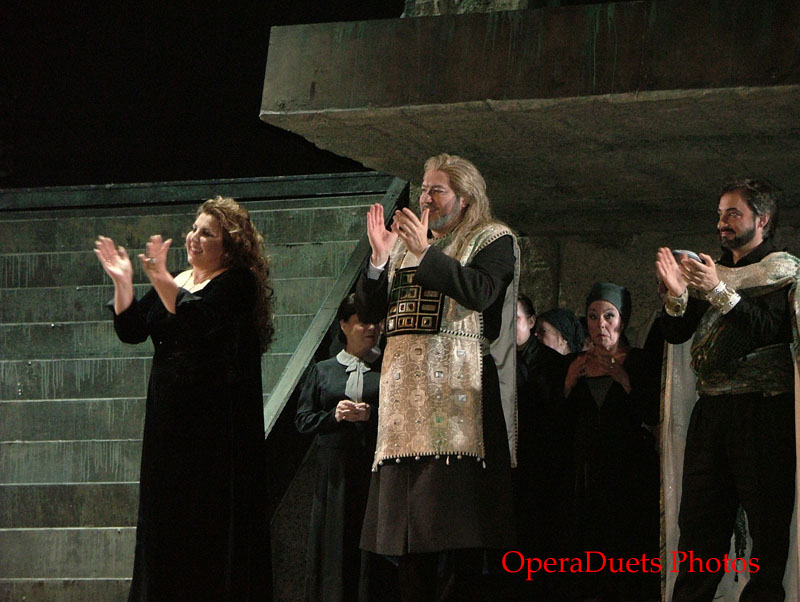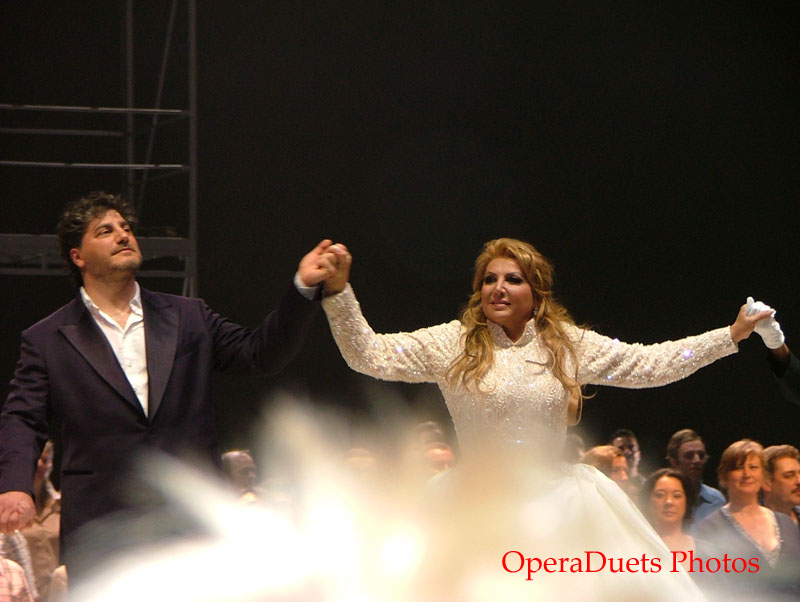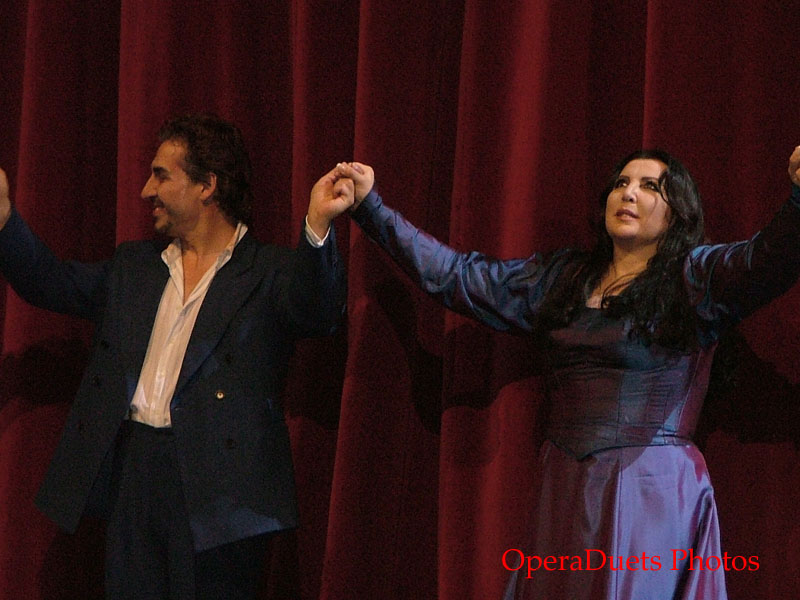2008-07-14 Nabucco (G. Verdi), Bayerische Staatsoper
Nabucco = Paolo Gavanelli
Ismaele = Aleksandrs Antonenko
Zaccaria = Giacomo Prestia
Abigaille = Maria Guleghina
Fenena = Heike Grötzinger
Il Gran Sacerdote = Steven Humes
Abdallo = Kevin Conners
Anna = Lana Kos
Paolo Carignani, conductor
Inszenierung, Bühne und Kostüme Yannis Kokkos
Licht Michael Bauer
Chöre Andrés Máspero
Dramaturgie Anne Blancard-Kokkos
Das Bayerische Staatsorchester
Der Chor der Bayerischen Staatsoper
Termin
Münchner Opernfestspiele 2008
Montag, 14. Juli 2008
Nationaltheater
19.30 - ca. 22.10 Uhr
Dauer: Ca. 2 Stunden 45 Minuten
Parte 1
01 Ouverture conducted by Paolo Carignani
Not the best NABUCCO ouverture that I have heard. Rather unimpressive.
02 Gli arredi festivi Chorus sang Ok, but the acting was so obviously staged. I did not get any feeling that the persons on stage felt anything out of the ordinary.
03 Sperate, o figli Giacomo Prestia, chorus. Giacomo Prestia did well as Zaccaria, obviously not in the best voice that evening. Not surprising since we were told that he was not well. The corus responded better with Giacomo Prestia as their chief voice.
04 Furibondo.... Aleksandrs Antonenko, Giacomo Prestia, chorus. Aleksandrs Antonenko was Ismaele and Giacomo Prestia as Zaccaria did their best to impress.
05 Fenena, mia diletta Aleksandrs Antonenko, Heike Grötzinger. Ismaele and Fenena. Heike Grötzinger was good as Fenena, but Ismaele was kind of boring
06 Prode Guerrier Maria Guleghina, Aleksandrs Antonenko, Heike Grötzinger. Finally some great singing and acting, Maria Guleghina as Abigaille.
07 Lo vedeste Chorus
08 Viva Nabucco! Maria Guleghina, Giacomo Prestia, Aleksandrs Antonenko, Paolo Gavanelli. Most unepressive Nabucco was Paolo Gavanelli, unfortunately, but he has a beautiful voice.
09 Tremin gl'insani.... Paolo Gavanelli, Maria Guleghina, Aleksandrs Antonenko, Heike Grötzinger, ensemble. As always wonderful to hear Mria Guleghina.
10 O vinti, il capo al terra! Paolo Gavanelli, Giacomo Prestia, Aleksandrs Antonenko, Maria Guleghina,
Heike Grötzinger.
Parte 2
11 Ben t'invenno, o fatal scritto Maria Guleghina. Another highlight from Maria Guleghina.
12 Anch'io dischiuso un giorno Maria Guleghina as sweet a sound as never before
13 Salgo gia Steven Humes, Chorus, Maria Guleghina. Would have been even better if Steven Humes (Gran sacerdote di Belo) and chorus had been more on par with Maria Guleghina.
14 Vieni, o Levita Giacomo Prestia. He does so well that one marvels at how he would do had be been well.
15 Che si vuol Chorus, Aleksandrs Antonenko.
16 Deh fratelli, perdonate. Lana Kos, Giacomo Prestia, Kevin Conners, Heike Grötzinger, Guleghina, Gavanelli
17 S'appressan l'instante Paolo Gavanelli, Maria Guleghina, Aleksandrs Antonenko, Heike Grötzinger, Prestia.
18 S'oda or me. Paolo Gavanelli, Giacomo Prestia, Heike Grötzinger, chorus.
19 Chi mi toglie.. Paolo Gavanelli...
Parte 3
20 E l'assria una Regina ... Chorus. Good singing but no acting,
21 Eccelsa Donna... Steven Humes, Maria Guleghina, Paolo Gavanelli, Kevin Conners
22 Donna, chi sei? Paolo Gavanelli, Maria Guleghina. Wonderful duet....
23 Oh, di qual onta.... Paolo Gavanelli, Maria Guleghina
24 Oh qual suon .... Paolo Gavanelli, Maria Guleghina
25 Deh perdona .... Paolo Gavanelli, Maria Guleghina
26 Va, pensiero Chorus. OK
27 Oh, chi piangi. Giacomo Prestia, chorus. Again Giacomo Prestia is the only one that can make the chorus be more alive.
Parte 4
28 Son pur queste mie membra Paolo Gavanelli is more Nabucco here is this part.
29 Dio di Giuda Paolo Gavanelli. Great aria
30 Porta fatal Paolo Gavanelli, Kevin Conners
31 O prode miei. Chorus, Paolo Gavanelli
32 Va la palma del martirio Giacomo Prestia, Heike Grötzinger. Finally an aria for Fenena. Wonderful.
33. Ah torna Israella Paolo Gavanelli, ensemble.
34 Immenso Jeovha Ensemble
35 Su me, morente Maria Guleghina. Fantastic Maria Guleghina!!!!!
My favorite opera, NABUCCO by G. Verdi and one of my favorite sopranos, Maria Guleghina as Abigaille. When the manager went out to announce something I got scared maybe it was something about my favorite Abigaille. But no, Giacomo Prestia was not well but was still singing.
Even as Giacomo Prestia was not well I still enjoyed his Zaccaria more than Paolo Gavanelli's Nabucco. Paolo Gavanelli was simply quite wrong as Nabucco in my opinion. He did quite well in Nabucco's great aria and was quite good in the great duet with Maria Guleghina. Ismaele was Aleksanders Antonenko who was not the best tenor for this role, but then which top star tenor would want to sing Ismaele. It is usually a role for the young tenor in the beginning of his career like it was for Josep Carreras and José Cura.
Maria Guleghina was a wonderful Abigaille. But the production was not a great one. The chorus sang well but felt nothing. It was much use of the possibilities on the stage to move stars and so on. But seldom did that add something to the opera. It was a lot of lost opportunities. Fenena was also great. Heike Grötzinger.
OD Travel
Original blog post:
A weak Nabucco in Munich (July 14, 2008)
For more reviews from my travels, see www.operaduetstravel.com
If you want to see more photos from my OperaDuets Travels, go to www.operaduetsphotos.com
